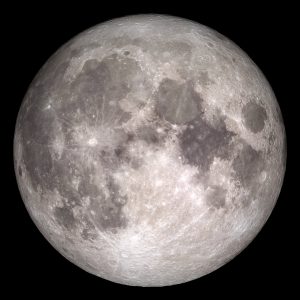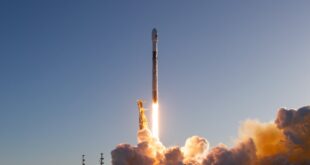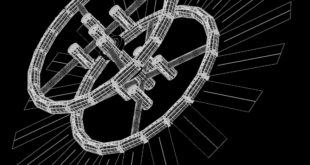
Israel’s SpaceIL has announced that it will launch its Moon probe on a SpaceX launch vehicle, to land in February 2019. If successful, the SpaceIL lunar mission will make Israel the fourth-ever country to land on the Moon, after the Soviet Union, U.S., and China.
SpaceIL unmanned Tuesday at a press conference that its unmanned spacecraft will land on the moon on 13 February 2019, SpaceIL also presented its completed spacecraft, scheduled to launch in December on a SpaceX rocket.
SpaceIL was established in 2011 with the goal of landing the first Israeli-made unmanned spacecraft on the moon in 2018, as part of Google’s Lunar X Prize. The Israeli team was among the five finalists in the 10-year space race in which privately funded teams worldwide competed for a U.S.$20 million prize. However, the competition was canceled in January when it became clear that none of the finalists would meet its March deadline. Despite the end of the competition,, SpaceIL announced it would continue its efforts to complete the mission.
“The philanthropists who put money into the project want to see Israel’s flag on the moon,” Yigil Harel, head of SpaceIL’s spacecraft program, told Calcalist in a phone interview.
Harel went on to tell Calcalist that the philanthropists will get their wish. It’s spacecraft is equipped with a camera set to take pictures of the moon’s surface, as well as of an Israeli flag embedded on the craft itself “as a symbolic flag-planting of sorts,” he continued.
The development and launch costs for the spacecraft total U.S.$95 million, with the required funding coming from private donations, including a crowdfunding campaign and a NIS grant worth approximately $22 million from Israeli businessman Morris Kahn. Other investors include the Adelson Family Foundation, defense contractor Israel Aerospace Industries Ltd. (IAI), the Israeli space agency and the Eurocom Group, owner of Israeli satellite operator Space Communication Ltd. (Spacecom), according to Pitchbook data reported by Calcalist.
When it reaches the moon, the SpaceIL’s craft will land and operate autonomously to conduct a two-day scientific mission in collaboration with the Weizmann Institute of Science, a research university in central Israel, Ido Anteby, CEO of SpaceIL explained during the press conference.
The spacecraft will also measure the magnetic fields around the landing site and transmit the data back to earth for further analysis and study by researchers around the globe, Harel explained.
 SpaceWatch.Global An independent perspective on space
SpaceWatch.Global An independent perspective on space




